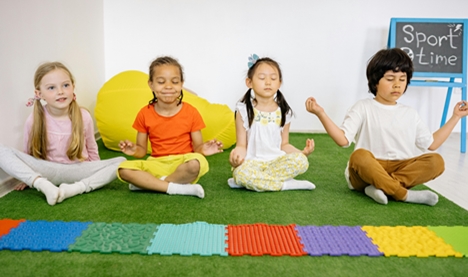
Inquiry-Based Learning in Early Childhood
Inquiry-based learning (IBL) is a dynamic approach to education that focuses on the child’s natural curiosity and encourages active exploration. This method is particularly effective in early childhood, where the foundational years play a crucial role in shaping a child's approach to learning. Unlike traditional rote learning methods, IBL emphasises asking questions, exploring, and reflecting, making the learning process more engaging and meaningful for young learners.
Understanding Inquiry-Based Learning
Inquiry-based learning is a student-centred approach that encourages children to explore subjects through questions, experiments, and hands-on activities. It allows young learners to take charge of their own learning journey, fostering independence, critical thinking, and problem-solving skills. By guiding children to discover answers on their own, IBL helps them develop a deeper understanding of concepts.
Key Principles of Inquiry-Based Learning
-
Encouraging Curiosity: At the heart of IBL is the encouragement of curiosity. Children are naturally inquisitive, and IBL harnesses this innate desire to learn by allowing them to ask questions and seek answers.
-
Learning through Play: Play is an integral part of IBL in early childhood. Activities that combine play and learning help children grasp complex ideas in a fun, stress-free manner.
-
Hands-on Exploration: IBL encourages children to engage with their environment through activities such as building, experimenting, and observing. This hands-on approach helps solidify learning in a tangible way.
-
Guided Discovery: While the learning is child-led, educators play a crucial role in guiding the discovery process, posing thought-provoking questions and facilitating deeper exploration.
The Role of Educators in Inquiry-Based Learning
Educators are facilitators in the IBL approach, guiding children’s natural curiosity while providing a supportive environment. Their role involves observing, asking open-ended questions, and encouraging children to think critically about what they are learning. By creating a stimulating environment with various materials and resources, teachers can support different inquiry styles, whether it's through art, science experiments, or storytelling.
Educator Strategies in Inquiry-Based Learning
| Strategy | Description |
|---|---|
| Open-Ended Questions | Asking questions that encourage children to think deeply and explain ideas. |
| Providing Materials | Offering resources like blocks, art supplies, and nature items for exploration. |
| Reflective Discussions | Encouraging children to discuss what they have learned and share insights. |
Benefits of Inquiry-Based Learning in Early Childhood
Development of Critical Thinking Skills
Inquiry-based learning nurtures critical thinking skills in young children by prompting them to ask questions, explore various solutions, and evaluate outcomes. This process helps them learn how to think, not just what to think.
Enhanced Social Skills
IBL often involves collaborative activities, which improve social skills such as sharing, communication, and teamwork. Children learn to listen to others, express their ideas, and work together towards common goals.
Improved Cognitive Development
The process of questioning and discovering stimulates cognitive growth, enhancing problem-solving abilities and creativity. Children learn to connect concepts and apply knowledge to new situations, which is crucial for their overall intellectual development.
Implementing Inquiry-Based Learning in the Classroom
Implementing IBL in early childhood settings requires a flexible curriculum that allows for exploration and adaptation based on the children’s interests. Classrooms should be equipped with materials that inspire inquiry, such as sensory tables, building blocks, and interactive displays. Educators can design activities that start with a question or problem and guide children through the process of discovery.
Creating an Inquiry-Friendly Environment
-
Diverse Learning Stations: Set up different stations with varied themes—nature, art, science—where children can explore according to their interests.
-
Reflective Spaces: Designate areas for children to think quietly, draw, or write about their findings, reinforcing the learning process.
-
Engaging Resources: Provide books, visual aids, and real-world objects that can stimulate discussions and further inquiry.
Inquiry-based learning in early childhood empowers children to become active participants in their education. By fostering curiosity, encouraging exploration, and developing critical thinking, IBL sets the foundation for lifelong learning. As educators and parents, embracing this approach can help nurture confident, independent, and thoughtful young learners who are ready to face future academic challenges.
 (1).png)